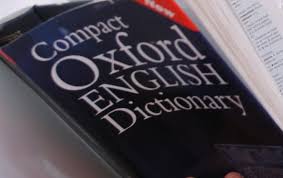- About
- Topics
- Picks
- Audio
- Story
- In-Depth
- Opinion
- News
- Donate
- Signup for our newsletterOur Editors' Best Picks.Send
Read, Debate: Engage.
It's the time of 'reviews', 'best ofs' and 'of the year'. Which means organisations basically announce what the year was about through meaningless awards – 'football manager of the year', 'best movie of the year', '2017 in review', the list goes on. All of it is essentially a meaningless filler to spread hope once again; with vital events of the year often overlooked, such as massacres and environmental devastations. But the Oxford English Dictionary has given us something to talk about. It has announced its word of the year: Youthquake.
Don't be surprised if you've never heard of it – basically no one uses it. Yet, it has apparently surged in its use since last year, by 401%, and describes some kind of mass cultural and political movement coming from the youth. It is mainly being applied to left-wing movements, such as the rise of socialist-leaning political groups in the UK, such as Momentum – the group backing Jeremy Corbyn's Labour party for government; but curiously, it's not being applied to the explosion of young far-right-wing groups which are becoming more and more prominent around the world: from India to Austria, it is young people who are driving the rise in hate.
There's been a far-right youthquake in the US and the UK, in Germany, in Turkey, in Russia and so many other places, that we may be looking at a youthquake whose seismic effects are felt for a couple of decades: a place in which far-right governments are kept in power by young voters, and policies of austerity that drive those voters to ever more extreme positions on 'undesirables'.
It's a bleak picture – but the word of the year, which no one uses might actually be worth looking out for.
